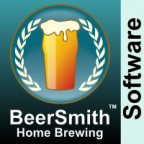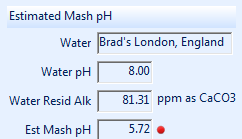

Keep reading for all the specifics about the best water profile for your NEIPA, plus how to achieve it when homebrewing this style. Sulfate can help adjust the bitterness of a beer too much sulfate, however, can result in an overwhelming amount of bitterness. Chloride promotes a fuller flavor and aroma in beer, perfect for NEIPAs. The ideal water profile for NEIPAs includes a heavy focus on chloride and sulfate with a recommended ratio of 3:1 or 2:1, respectively. The water profile for your NEIPA should be as close to perfect as it can be. It’s important that the fragile aroma and taste are not tainted by anything that shouldn’t be in your beer.

New England IPAs are a very delicate style of beer. What is the ideal water profile for NEIPAs (New England IPA)?
What to add to RO or distilled water to make a NEIPA. What is the best water to start with for NEIPAs?. How do you adjust your brew water profile?. How important is the water profile in brewing?. Should you use a certain city’s water profile for NEIPAs?. What is the ideal water profile for NEIPAs (New England IPA)?. If you don't have that salt just leave it out. Since it works well for dark beers, I would assume that a Munich brewer, who doesn't have his own water supply, would be using it without any treatment to brew these beers. While this is mimics the city water of Munich I don't know how many breweries actually brew with this water. I use this water for dark Bavarian beers like Bock and Doppelbock. In English, there are much more bicarbonate ions in this water than chloride or sulfate. This water capures the essence of the Munich water: high temporary hardness and low permanent harness. I was able to come close but could have come closer with the use of Magnesium carbonate. To create this water I went to the web page of the water department of the city of Munich and read the current water report. There is a undissolved and dissolved chalk option. This is the water I tend to used for dark German beers, in paticular for my Schwarzbier. This water, Pilsner malt and 2% acid malt in the grist should yield a mash pH round 5.4. It has no alkalinity and a calcium level of ~60 ppm. This water I have used for German Pilsner and American Pilsner with success. Munich Helles (with the use of 2-3% acid malt in the grist). While it makes a great water for Weissbier, in fact the dissertation was about brewing Weissbier, it is not necessarily the water that the Weihenstephan brewery uses. 
It is not often that I come across actual brewing water analysis data in the literature but the Markus Hermann's dissertation gave an insight into the water that is used for brewing studies at the Weihenstephan brewing school in Freising, Germany. I use this water with a 97% Pilsner malt and 3% acidulated malt (Sauermalz) grist and get a mash pH of about 5.3-5.4. I don't know if they are adding additional minerals when they brew their lighter beers with that water but it is very likely that they don't. Paulaner, for example, uses a deep well from which they get very soft (~ 2 dH / 30 ppm CaCO3 Hardness) brewing water. I have used this for one batch and despite the low calcium level did not have problems with the getting the beer to clear. This is a very soft water option for a Munich Helles or a Pilsner.







 0 kommentar(er)
0 kommentar(er)
